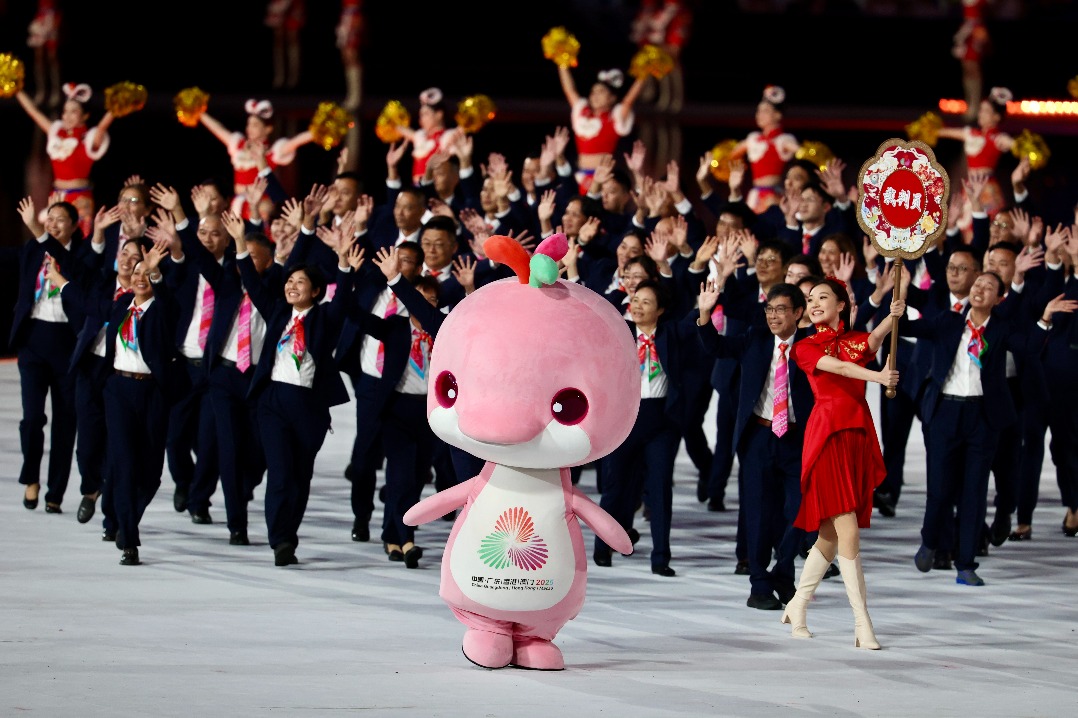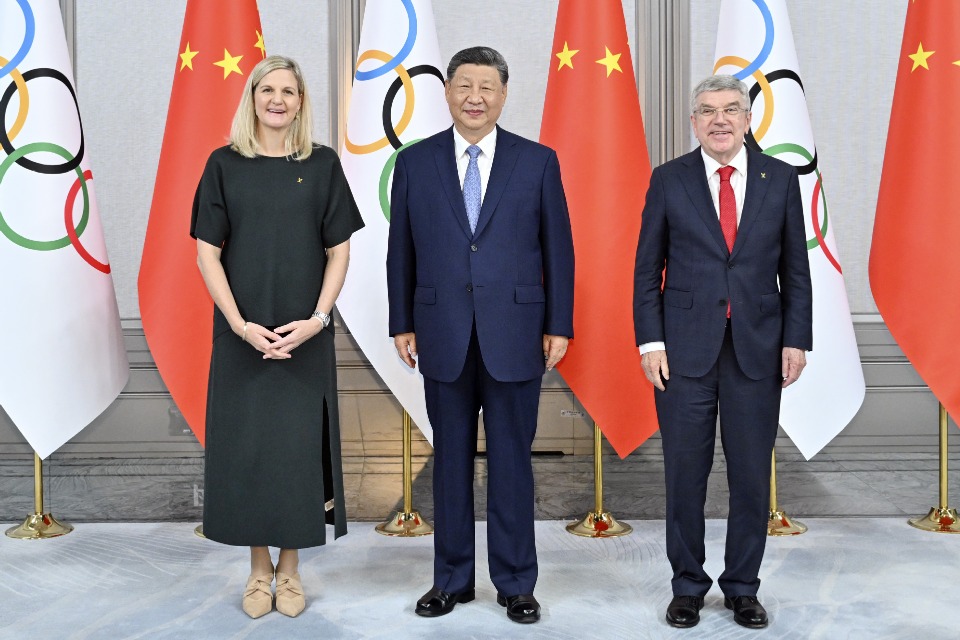Cultural harmony leads to better future

Xi Jinping Thought on Culture reveals the outstanding characteristics of Chinese civilization and discusses the theories, principles and philosophy of cultural exchanges. According to Xi Jinping Thought on Culture, civilizational exchanges can transcend barriers and conflicts, and inter-civilizational interactions can boost the harmonious development of civilizations.
No civilization can exist independently, or by refusing to interact with other civilizations. The coexistence of and exchanges between civilizations are the norm, with all civilizations moving toward a harmonious future.
Marxism reveals the characteristics of human civilization. The internal structure of every nation is determined by its production capacity, and internal and external exchanges. Civilization is the result of people's joint activities in certain social setups, with the social division of labor and interactions promoting the development of civilizations.
Chinese philosophers have always emphasized the importance of "harmony". In Chinese culture, harmony does not mean that all things are uniform, nor does it mean they are merged into one. Instead, harmony means peaceful coexistence, recognizing and respecting differences, and forging a better future.
A harmonious social environment has always been the mainstream trend in China's history. China started developing its economy and culture in ancient times by communicating with neighboring countries and spreading its civilization and culture in other parts of the world. Although China was the center of the ancient Silk Road, it never took advantage of the system to economically exploit other countries; rather, it treated foreign business people very well.
Today, civilizations are adopting a new format despite the turbulent and uncertain global landscape. And together with other countries, China has been promoting civilizational dialogue and exchanges across the globe, learning from each other and abandoning the old political order based on protectionism and unilateralism. The country has also been contributing its unique wisdom to the development of civilizations, in order to help develop a more healthy global governance system.
The integration of the basic tenets of Marxism, and China's specific realities and traditional culture forms the basis of Chinese Marxism, which has been guiding China's reforms and economic construction during the past decades.
First, the "two integrations" form the foundation for building a harmonious civilization. Since its founding, the Communist Party of China has been the leading practitioner of modern Chinese culture, as well as the inheritor and promoter of traditional culture. The Party employs Marxism to promote traditional culture, boost the national spirit, and meet the people's new spiritual needs. Chinese Marxism thrives on traditional culture, creating a favorable environment for the harmonious development of Chinese civilization.
Second, the "two integrations" show the inclusiveness of Chinese civilization. The more than 5,000-year-old Chinese civilization has developed by incorporating the good elements of the Central Plains culture, grassland culture, southern culture, West Asian culture and Siberian culture. This incorporation has transcended geographical limitations and introduced diversified elements into Chinese civilization. More importantly, in the early 20th century, Marxism injected new vitality into Chinese civilization, turning it into a more open and inclusive society.
Third, the "two integrations" have added Chinese characteristics to Marxism. The Chinese civilization keeps reforming itself, reflecting its modern spirit after adopting Marxism as the guiding political principle, which in turn promotes Marxism and has helped make great achievements in the new era.
And fourth, the "two integrations" consolidate the historical and cultural foundations of Chinese modernization, promote cultural prosperity brought about by the harmonious development of the Chinese civilization. During the more than 100 years of its existence, the Party has been drawing wisdom from traditional Chinese culture and promoting Chinese modernization, which reflects the cultural connotations and unique advantages of the path of socialism with Chinese characteristics.
The achievements of socialism with Chinese characteristics in the new era have provided better institutional guarantee, material foundation and spiritual power for Chinese modernization. Chinese modernization, incidentally, also offers a new option for other developing countries to realize modernity, and helping their people achieve both material and spiritual prosperity.
Furthermore, the Global Civilization Initiative proposed by China defines the primary premise, historical position and development path of global civilization, explains the basic vision of civilizational development in the new era, and provides strong support for creating a new global order and jointly building a community with a shared future for mankind.
The concept of a community with a shared future for mankind is rooted in traditional Chinese culture, which has developed through revolutions, and matured after the launch of reform and opening-up. Building a community with a shared future for mankind will promote the harmonious development of civilizations and help solve major global problems, apart from injecting new energy into global development and boosting international cooperation.
By realizing civilizational harmony, we can forge a new and better future for all.
Zhang Donggang is Party secretary of Renmin University of China; and Zang Fengyu is dean of the School of Philosophy, Renmin University of China.
The views don't necessarily reflect those of China Daily.
If you have a specific expertise, or would like to share your thought about our stories, then send us your writings at opinion@chinadaily.com.cn, and comment@chinadaily.com.cn.



































